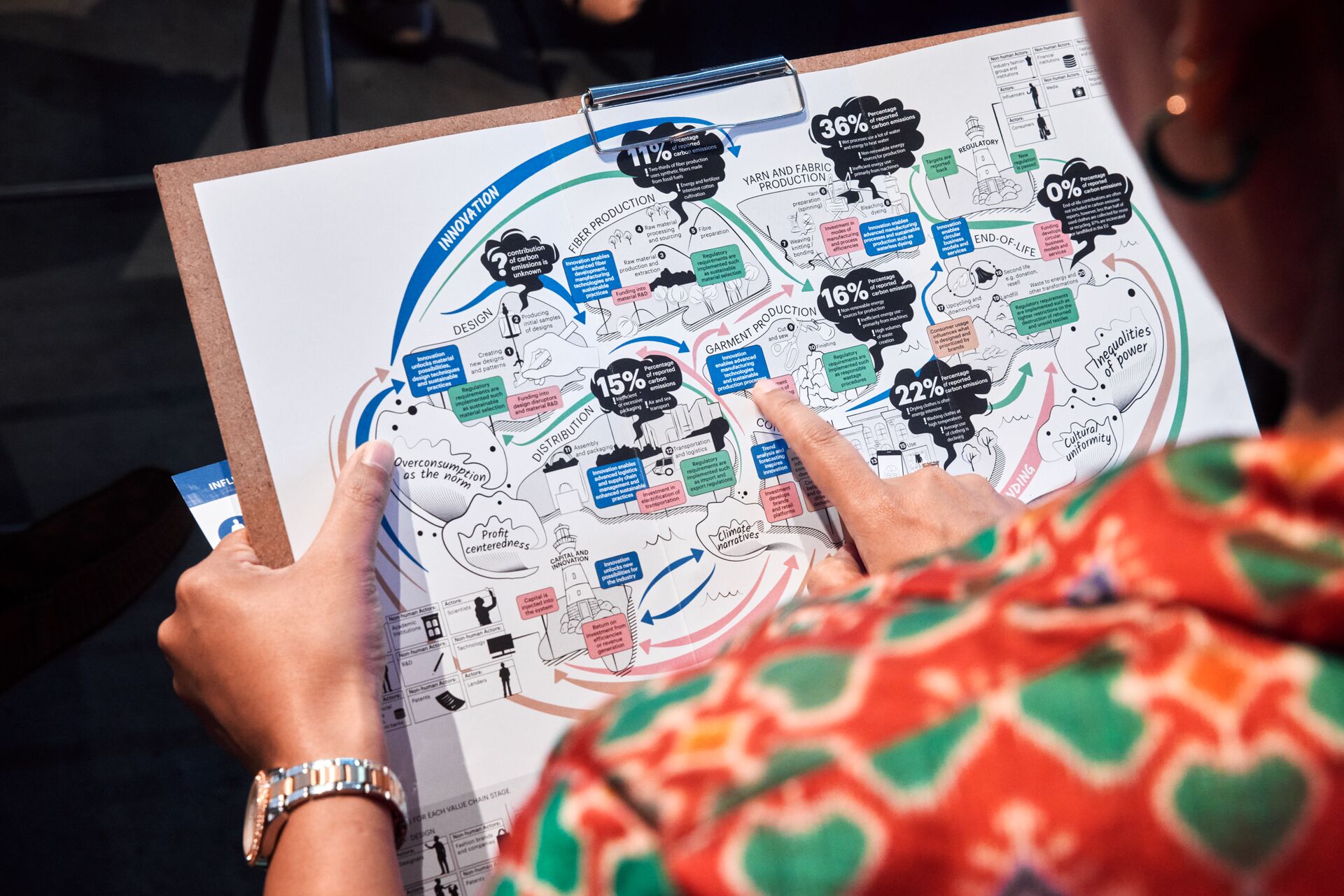Rethinking the system: 3 key takeaways from the GCA Summit solutions session
What does it take to accelerate the decarbonisation of the textile industry? At the Global Change Award Summit in Mumbai, over 150 changemakers, industry leaders, and systems thinkers gathered to tackle this very question.

The System Map was a centre piece at the solution session in Mumbai, sparking conversations about the textile industry.
During the solutions session, hosted by GCA partner Accenture, participants explored how to build an ecosystem where bold, disruptive ideas can thrive and drive real impact. A key tool in this discussion was the System Map – a visual guide that helped participants identify their place in the industry and explore how different actors can work together to drive systemic change. The session made one thing clear: the transition to a net-zero industry isn’t just about technology – it’s about people, collaboration, and rethinking the system as a whole.
Here are 3 key takeaways from the session:
1. The social ‘S’ in ESG is key
With around 430 million people employed in the global garment and textile industry – 12.6% of the world’s working population – any transformation must centre on people. A just transition means ensuring that no one is left behind and that decarbonisation strategies account for both the intended and unintended consequences on workers, communities, and businesses across the system.
Participants highlighted that engaging diverse voices – from supply chain workers to policymakers – is essential. Both formal and informal stakeholders must have a seat at the table, shaping solutions that work for everyone. Only through inclusive dialogue and shared decision-making can we advance a truly just transition.
2. Building a shared ecosystem for changemakers to thrive
Collaboration emerged as another critical theme. While innovation is happening across the industry, isolated efforts and point-to-point solutions are not enough to move the needle. Instead, changemakers need an ecosystem of shared responsibility, where cross-sector partnerships create real, systemic impact.
This means connecting academic institutions, corporations, NGOs, and changemakers early in their innovation journeys. Participants also stressed the need to increase awareness and accountability around the true cost of products, leveraging traceability and transparency tools to drive more inclusive and ethical industry practices.
Local changemakers were recognised as key system thinkers, equipped with deep knowledge of local challenges and opportunities. Their insights are essential to driving meaningful change, but they need the right support structures to transform their groundbreaking ideas into scalable solutions.
3. Scaling innovation beyond financial support
One of the most widely agreed-upon insights was that innovation is at the heart of the transition. Programs like the Global Change Award play a crucial role in catalysing new ideas and building the networks innovators need to succeed.
However, financial support alone isn’t enough. Changemakers need access to knowledge, mentorship, and strategic connections to scale their impact. Supporting the next generation of innovators requires a shift from individual efforts to collective action, ensuring that disruptive solutions have the backing they need to transform the system at large.
The transition to a net-zero textile industry demands bold ideas, inclusive collaboration, and shared responsibility. By fostering a thriving ecosystem where changemakers can connect, learn, and scale their solutions, we can accelerate the industry’s decarbonisation journey – and create a future that benefits both people and the planet.
In brief
By mapping out the path to industry-wide decarbonisation, the System Map helps turn reflection into action, guiding the textile sector toward meaningful change.



